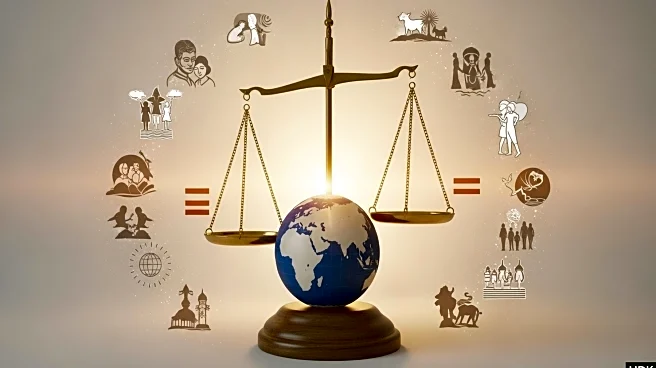What's Happening?
Open Society Foundations, led by George Soros, is undergoing a significant transformation in its philanthropic approach. Historically a major supporter of human rights organizations worldwide, the foundation is now emphasizing the fight against inequality. This shift follows internal changes and a generational leadership transition, with Alex Soros taking over in late 2022. The foundation is focusing on long-term, unrestricted funding for human rights defenders, particularly those combating environmental destruction. Despite facing criticism from political figures like President Trump, OSF remains committed to its mission of advancing human rights and democracy globally.
Why It's Important?
The shift in focus by Open Society Foundations highlights the growing recognition of inequality as a threat to democracy. By prioritizing this issue, OSF aims to address systemic challenges that undermine democratic principles. This move could influence other philanthropic organizations to reconsider their strategies in tackling global issues. The foundation's decision to increase support in Africa and the Global South reflects a strategic pivot towards regions with significant developmental needs. However, the potential reduction in focus on Europe raises concerns about the stability of democratic values in the continent.
What's Next?
Open Society Foundations is actively developing new programs, including a digital magazine to foster political economy discussions. The foundation is launching initiatives in Africa, focusing on critical minerals and peace-building, while exploring democratic futures in Kenya, Nigeria, and Senegal. These efforts aim to build alternatives rooted in local economies, moving away from traditional electoral cycles. The foundation's approach may inspire other organizations to adopt similar strategies, potentially reshaping the landscape of global philanthropy.
Beyond the Headlines
The foundation's shift away from Europe at a time of rising authoritarianism could have long-term implications for the continent's political stability. Additionally, the focus on inequality and environmental advocacy may lead to increased scrutiny and opposition from political entities that view these efforts as threats to their power. The foundation's commitment to fostering unorthodox ideas and critique could contribute to reducing societal polarization.









